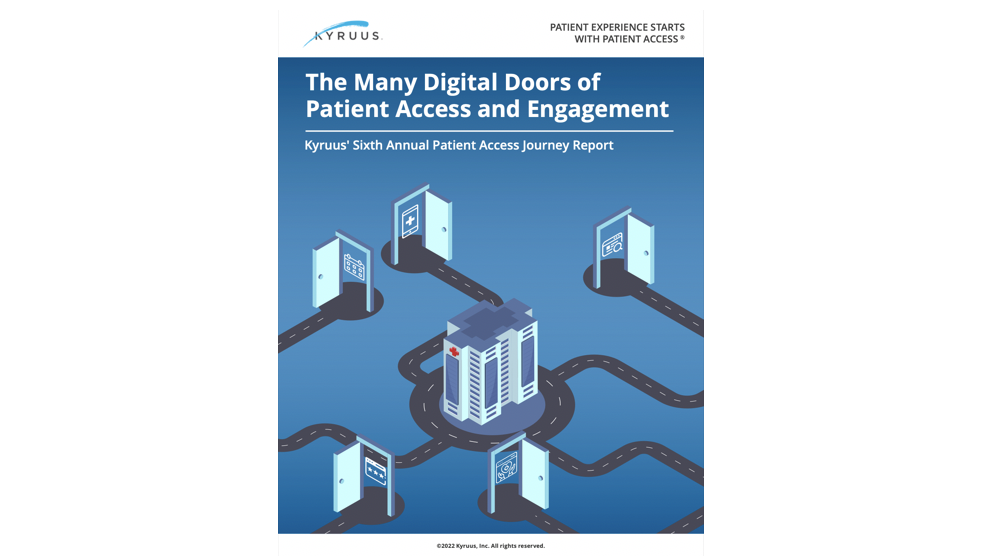 Sixth Annual Survey from Kyruus Highlights the Importance of Multiple “Digital Doors” for People Seeking Care
Sixth Annual Survey from Kyruus Highlights the Importance of Multiple “Digital Doors” for People Seeking Care
Boston – October 20, 2022 – Kyruus today released findings from its sixth annual survey of 1,000 healthcare consumers which examines preferences for searching for, selecting, and accessing care. The findings from the 2022 Patient Access Journey Report confirm that patients are consumers first, with new data revealing sophisticated shopping behaviors, such as consulting multiple online resources to find care, and comparing cost, quality, and convenience information before selecting a provider. The report also shows that the concept of a “digital front door” is evolving to include a variety of entry points, from healthcare organization websites to mobile apps to Google.
When it comes to finding care, consumers continue to rely on digital channels for information about new providers—61% research online, and of those, nearly 80% reported consulting two or more online resources. Healthcare organizations’ websites remain the most used online resource, closely followed by general internet searches (e.g., Google), and health plan websites. Additionally, consumers increasingly prefer to take action through digital channels: 40% prefer to book appointments online, and more than 90% demonstrate strong interest in digital self-service options for pre-appointment tasks (e.g., check-in, payment, and insurance verification).
Additional findings include:
- Cost heavily influences care selection: 87% of consumers consider cost when choosing providers, and 68% are more likely to schedule care when they have visibility into expected out-of-pocket expenses before the appointment.
- Consumers prioritize convenience, quality, and cost: Insurance acceptance (94%), clinical expertise (87%), reputation (84%), and appointment availability (84%) are what consumers value most, and more than half of consumers compare costs.
- Staffing shortages impact consumers: Almost 20% report long hold times when calling to book care, and of those, 28% were unsuccessful in their attempt to book care—opting to seek care at another organization or delaying care altogether.
- Preference for online scheduling is high across generations: 55% of Millennials and 46% of Gen X prefer online scheduling, whereas the majority of Baby Boomers and Gen Z prefer scheduling via phone. Of those who tried to book via phone, more than half experienced scheduling difficulties, and almost 1/3 were completely unsuccessful in accessing care at all.
- Interest in self-service goes beyond online scheduling: Compared to phone or in-person options, 93% of consumers are extremely or very interested in self-service capabilities to find provider location information, provide insurance and verify coverage, complete pre-visit questionnaires, and/or make payments.
“Our research consistently shows that consumers use multiple digital touchpoints as they search for and access care,” said Scott Andrews, General Manager, Health Systems at Kyruus. “Healthcare organizations have significant opportunities to continue enhancing self-service offerings beyond scheduling to meet growing demand for easy, seamless, and reliable digital experiences across the entire care journey.”
Kyruus conducted the survey of 1,000 consumers in partnership with Wakefield Research in August 2022. All survey respondents searched for a healthcare provider themselves in the last two years, and about 80% searched within the prior 12 months.
To access the full survey findings, download the 2022 Patient Access Journey Report here.

